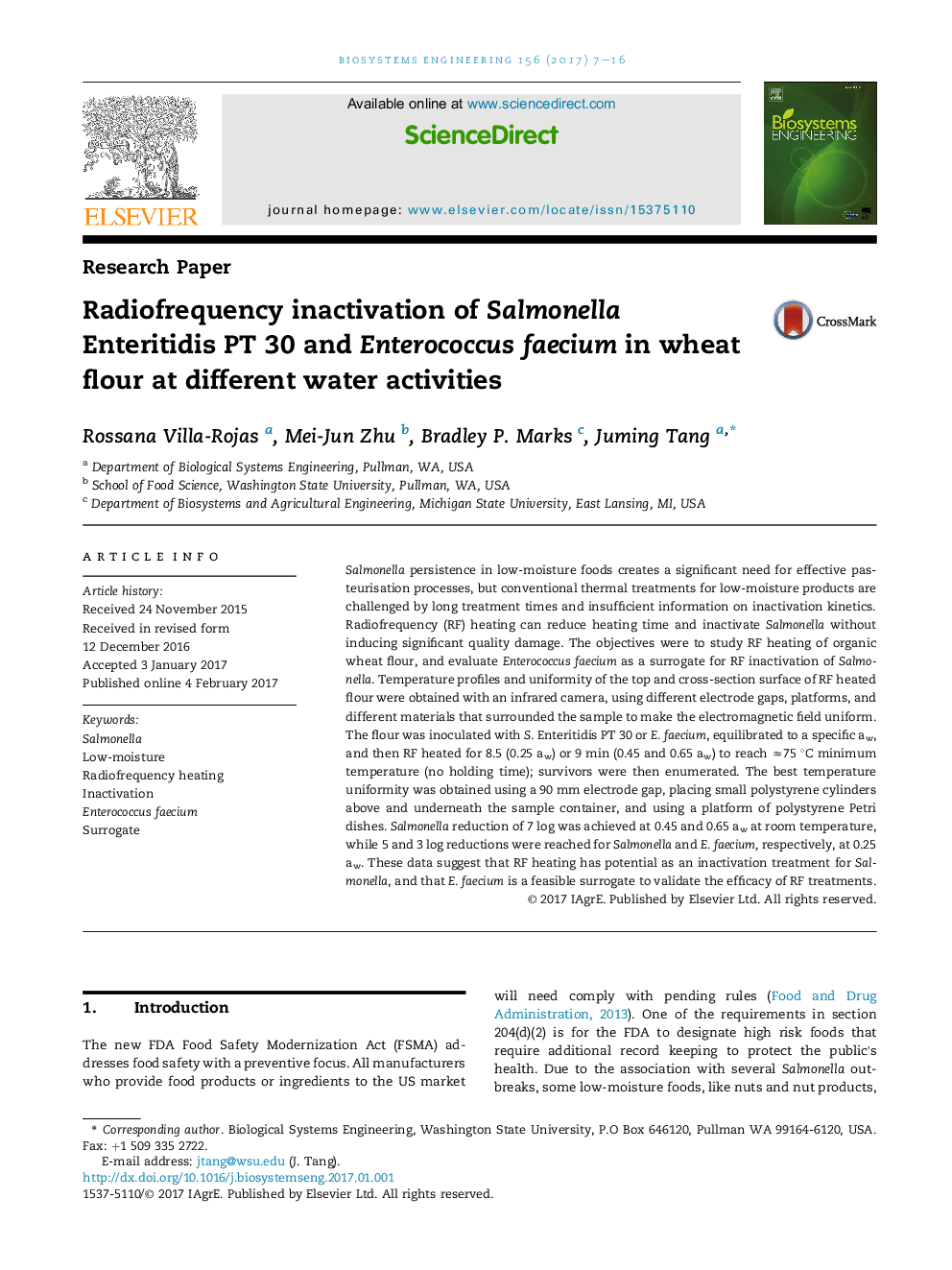| Article ID | Journal | Published Year | Pages | File Type |
|---|---|---|---|---|
| 5471861 | Biosystems Engineering | 2017 | 10 Pages |
â¢RF heating is an effective inactivation treatment for Salmonella in wheat flour.â¢RF heating is an effective inactivation treatment for Enterococcus faecium in wheat flour.â¢E. faecium is a good surrogate to validate RF thermal inactivation of Salmonella.
Salmonella persistence in low-moisture foods creates a significant need for effective pasteurisation processes, but conventional thermal treatments for low-moisture products are challenged by long treatment times and insufficient information on inactivation kinetics. Radiofrequency (RF) heating can reduce heating time and inactivate Salmonella without inducing significant quality damage. The objectives were to study RF heating of organic wheat flour, and evaluate Enterococcus faecium as a surrogate for RF inactivation of Salmonella. Temperature profiles and uniformity of the top and cross-section surface of RF heated flour were obtained with an infrared camera, using different electrode gaps, platforms, and different materials that surrounded the sample to make the electromagnetic field uniform. The flour was inoculated with S. Enteritidis PT 30 or E. faecium, equilibrated to a specific aw, and then RF heated for 8.5 (0.25 aw) or 9 min (0.45 and 0.65 aw) to reach â75 °C minimum temperature (no holding time); survivors were then enumerated. The best temperature uniformity was obtained using a 90 mm electrode gap, placing small polystyrene cylinders above and underneath the sample container, and using a platform of polystyrene Petri dishes. Salmonella reduction of 7 log was achieved at 0.45 and 0.65 aw at room temperature, while 5 and 3 log reductions were reached for Salmonella and E. faecium, respectively, at 0.25 aw. These data suggest that RF heating has potential as an inactivation treatment for Salmonella, and that E. faecium is a feasible surrogate to validate the efficacy of RF treatments.
